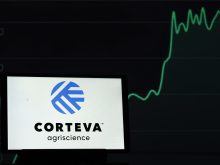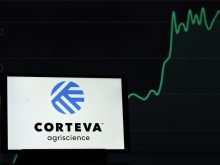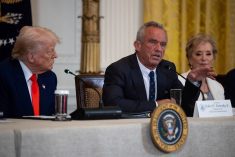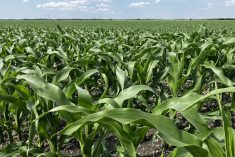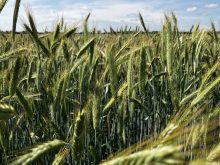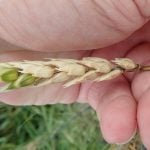Washington | Reuters — The U.S. Federal Trade Commission on Thursday sued two top pesticide manufacturers for allegedly entering into exclusive contracts with distributors that kept prices paid by farmers artificially high.
The consumer watchdog agency was motivated to bring the case in part because rising costs and supply chain disruptions from Russia’s invasion of Ukraine have put economic pressure on farmers, an agency official told Reuters.
Chinese-owned Syngenta and U.S.-based Corteva paid distributors not to offer farmers generic pesticides, herbicides and fungicides after the companies’ patents on six chemical ingredients expired, the FTC said.
Read Also

U.S. livestock: Feeder cattle hit contract highs on tight supply
Chicago | Reuters – All Chicago Mercantile Exchange feeder cattle futures and most live cattle futures hit contract highs on…
As a result, farmers have paid around 20 per cent more, amounting to hundreds of millions of dollars a year, for the companies’ products, the agency official said.
“By paying off distributors to block generic producers from the market, these giants have deprived farmers of cheaper and more innovative options,” FTC chair Lina Khan said in a press release.
Corteva spokesperson Kris Allen said in an email that the company believes the complaint has no basis.
“We will vigorously defend our position that Corteva’s customer marketing programs are fully compliant with the antitrust laws,” Allen said.
Syngenta did not immediately respond to a request for comment.
The attorneys general of 10 states joined in the suit, the FTC said.
Prices for chemical weed and pest suppressants have risen sharply this year, sending farmers hunting for alternatives.
Earlier this year, the U.S. Department of Agriculture collected public comments on competition issues in the agricultural inputs sector, including pesticides, seeds and fertilizer.
— Leah Douglas reports on U.S. agriculture and energy policy for Reuters from Washington, D.C.



